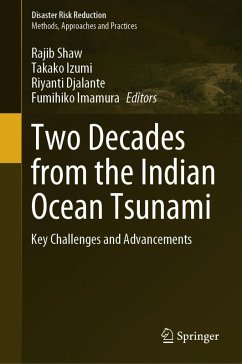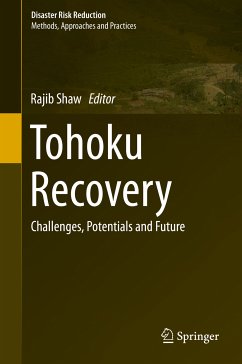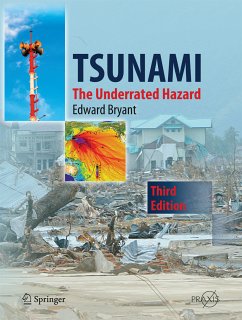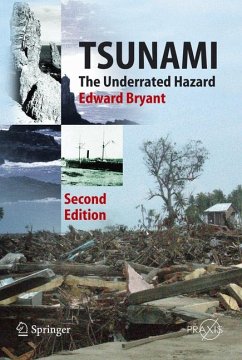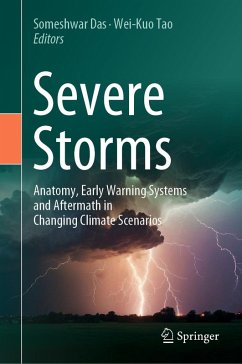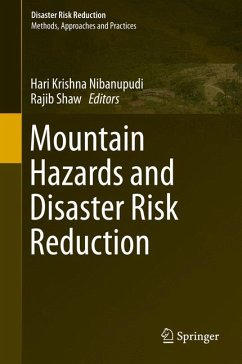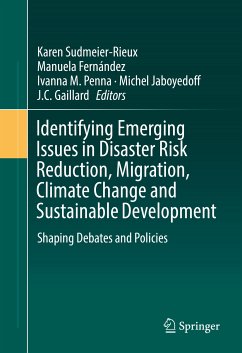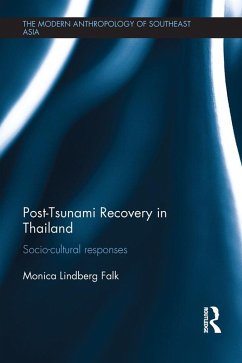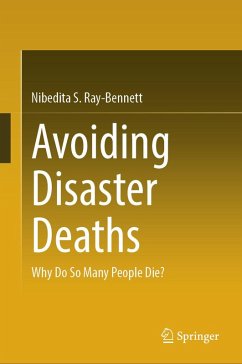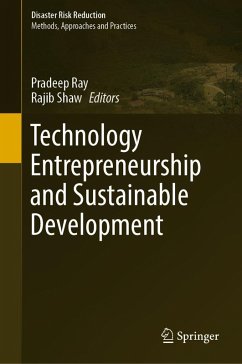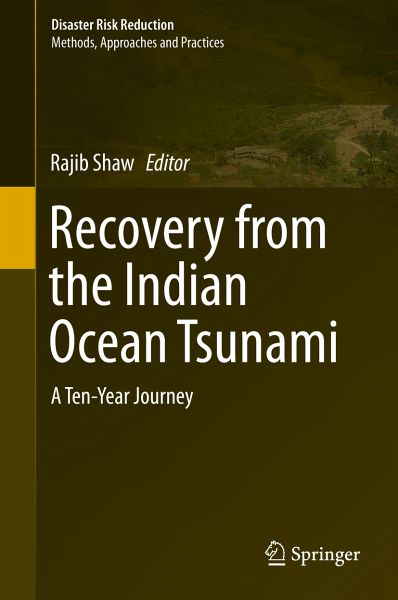
Recovery from the Indian Ocean Tsunami (eBook, PDF)
A Ten-Year Journey
Redaktion: Shaw, Rajib
Versandkostenfrei!
Sofort per Download lieferbar
112,95 €
inkl. MwSt.
Weitere Ausgaben:

PAYBACK Punkte
56 °P sammeln!
During the past 10 years following the 2004 Indian Ocean Tsunami, invaluable lessons have been learned and great changes have been observed. Immediately after the disaster, the second World Conference on Disaster Reduction was held in Kobe, Japan, and formulated the Hyogo Framework for Action (HFA: 2005-2015). HFA provided a platform and framework for changes and innovations, many of which were part of the recovery programs in the different countries affected by the 2004 disaster. This book is a modest attempt to review the lessons learned through the recovery process in the affected region.Th...
During the past 10 years following the 2004 Indian Ocean Tsunami, invaluable lessons have been learned and great changes have been observed. Immediately after the disaster, the second World Conference on Disaster Reduction was held in Kobe, Japan, and formulated the Hyogo Framework for Action (HFA: 2005-2015). HFA provided a platform and framework for changes and innovations, many of which were part of the recovery programs in the different countries affected by the 2004 disaster. This book is a modest attempt to review the lessons learned through the recovery process in the affected region.
The book has 31 chapters, drawing lessons from four countries: India, Indonesia, Sri Lanka, and Thailand. There are five sections: Overview (10 chapters), Indonesia (8 chapters), India (6 chapters), Sri Lanka (5 chapters), and Thailand (2 chapters).
The primary target groups for this book are students and researchers in the fields of disaster risk reduction, environment, and development. The book provides them with a good idea of the current research trends and lessons over the past decade of recovery initiatives. Another target group comprises practitioners and policy makers, who will be able to apply the knowledge collected here to establishing policy and making decisions.
The book has 31 chapters, drawing lessons from four countries: India, Indonesia, Sri Lanka, and Thailand. There are five sections: Overview (10 chapters), Indonesia (8 chapters), India (6 chapters), Sri Lanka (5 chapters), and Thailand (2 chapters).
The primary target groups for this book are students and researchers in the fields of disaster risk reduction, environment, and development. The book provides them with a good idea of the current research trends and lessons over the past decade of recovery initiatives. Another target group comprises practitioners and policy makers, who will be able to apply the knowledge collected here to establishing policy and making decisions.
Dieser Download kann aus rechtlichen Gründen nur mit Rechnungsadresse in A, B, BG, CY, CZ, D, DK, EW, E, FIN, F, GR, HR, H, IRL, I, LT, L, LR, M, NL, PL, P, R, S, SLO, SK ausgeliefert werden.




